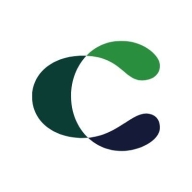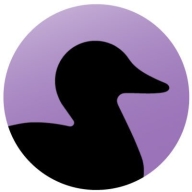

Contrast Security Assess and Coverity Static compete in the static analysis category. Coverity Static can have the upper hand due to its advanced features and comprehensive code inspection capabilities.
Features: Contrast Security Assess offers real-time monitoring, seamless integration with software development tools, and an effective interactive application security testing (IAST) component. Coverity Static provides comprehensive code analysis to pinpoint critical vulnerabilities, a low false positive rate, and integration with popular CI/CD tools.
Room for Improvement: Contrast Security Assess could improve its usage of Protect functionality alongside other overlapping security tools and expand upon its user interface for better clarity. Coverity Static could streamline its setup process, offer more detailed customization options for developers, and enhance its documentation for ease of understanding.
Ease of Deployment and Customer Service: Contrast Security Assess facilitates a quick deployment with efficient customer support. Coverity Static, despite a potentially more complex setup due to its robust analysis tools, compensates with reliable assistance and comprehensive customer service.
Pricing and ROI: Contrast Security Assess presents a competitive pricing model, offering a cost-effective solution with good ROI through its integration and support. Coverity Static involves a higher setup cost, but its extensive feature set yields a strong ROI for enterprises requiring deep code analysis capabilities.
| Product | Market Share (%) |
|---|---|
| Coverity Static | 5.4% |
| Contrast Security Assess | 0.6% |
| Other | 94.0% |


| Company Size | Count |
|---|---|
| Small Business | 2 |
| Midsize Enterprise | 3 |
| Large Enterprise | 6 |
| Company Size | Count |
|---|---|
| Small Business | 8 |
| Midsize Enterprise | 6 |
| Large Enterprise | 31 |
Contrast Security is the world’s leading provider of security technology that enables software applications to protect themselves against cyberattacks, heralding the new era of self-protecting software. Contrast's patented deep security instrumentation is the breakthrough technology that enables highly accurate assessment and always-on protection of an entire application portfolio, without disruptive scanning or expensive security experts. Only Contrast has sensors that work actively inside applications to uncover vulnerabilities, prevent data breaches, and secure the entire enterprise from development, to operations, to production.
Coverity gives you the speed, ease of use, accuracy, industry standards compliance, and scalability that you need to develop high-quality, secure applications. Coverity identifies critical software quality defects and security vulnerabilities in code as it’s written, early in the development process, when it’s least costly and easiest to fix. With the Code Sight integrated development environment (IDE) plugin, developers get accurate analysis in seconds in their IDE as they code. Precise actionable remediation advice and context-specific eLearning help your developers understand how to fix their prioritized issues quickly, without having to become security experts.
Coverity seamlessly integrates automated security testing into your CI/CD pipelines and supports your existing development tools and workflows. Choose where and how to do your development: on-premises or in the cloud with the Polaris Software Integrity Platform (SaaS), a highly scalable, cloud-based application security platform. Coverity supports more than 20 languages and 200 frameworks and templates.
We monitor all Static Application Security Testing (SAST) reviews to prevent fraudulent reviews and keep review quality high. We do not post reviews by company employees or direct competitors. We validate each review for authenticity via cross-reference with LinkedIn, and personal follow-up with the reviewer when necessary.